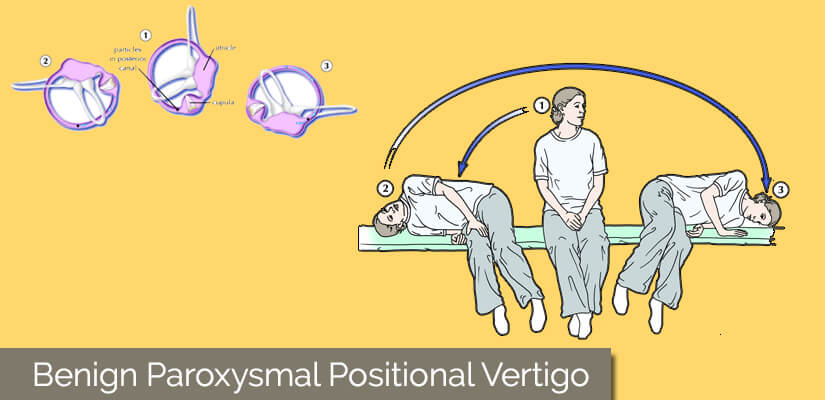
The one part of the inner ear is responsible for hearing (cochlea) and the other part for balance (labyrinth). If the nerve that connects to the brain break or stops functioning, it results in Tinnitus And Dizziness.
Dizziness is the feeling of lightheadedness or unbalance and vertigo. Many types of disorders occur in the inner ear that causes dizziness. Mostly 50 percent of the dizziness experiences are caused by inner ear disturbances. The body’s sense of balance depends on the inner ear, eyes, and sensory nerves.
If you need any assistance or have a question about Dizziness, you can consult our HearingSol experts with your problem, feel free to call us on +91-9327901950. We are always here to help you.
Symptoms of Dizziness
- Faintness or light-headedness
- Weak or unsteady
- A false sense of motion or vertigo
- A feeling of dizziness or heavy headless
Causes of Dizziness
There are various factors causing dizziness. Nearly 50 percent of the dizziness caused by the inner ear disturbances, 15 percent due to physiological disturbance, 5 percent by medical, and remaining are unknown.
- Meniere’s Disease – It is an inner ear disorder in which fluid builds up in the inner ear causing a feeling of ear fullness and hearing loss. It generally affects only one ear. The frequency of hearing loss varies from temporary to permanent.
- Benign Paroxysmal Positional Vertigo(BPPV)– It is the most common type of dizziness from an inner ear problem. It occurs by a specific movement of the head.
- Central vestibular – Sound is not traveled to the inner ear. The vestibular system contains part of the inner ear and the brain that controls all the balance. When they damage hearing loss occurs due to the feeling of vertigo or dizziness. It accounts for 14 percent of the inner ear-related problems.
- Sensorineural hearing loss – It is also called nerve deafness. It occurs due to the disorder of hair cell of the cochlea ( part of the inner ear that receive sound).
- Sudden sensorineural hearing loss (SSHL) – It is caused by sudden deafness occurring over 72 hours or less. It occurs mostly in the 30 to 60 age group. Almost 50 percent of the suffering from SSNHL experiences dizziness and vertigo.
Other Dizziness Causes
- Central dizziness – Dizziness begins in the central nervous system. It is caused by migraines, tumors, infection, and trauma.
- Visual dizziness – It is also called visual vertigo. It occurs due to an imbalance of the eye muscles causing difficulty in focusing and reading.
When To Consult A Doctor?
Consult the doctor as soon as you have these symptoms –
- Continuous vomiting
- A severe headache
- Visual motion
- Photosensitivity (Extreme sensitive to ultraviolet rays )
- Nystagmus ( the involuntary jumping of the eye )
- Fever, cold hands
Evaluating Tinnitus And Dizziness
The first step in evaluating is often a hearing test. The cochlea, our hearing organ, is contained inside the bony structure as the balance organ. A behavioral hearing test in a sound booth may be done after an Auditory Brainstem Response (ABR) test. An ABR test is nothing but non-invasively records brainstem responses to sound stimuli. The brain waves collect while you rest comfortably with closed eyes. The presence or absence of hearing loss or auditory brainstem anomalies will give clues to the physician regarding the cause of the symptoms.
The second common test for balance is VNG or videonystagmography. Generally, ENT physician or an audiologist perform these test, a VNG test makes the use of video cameras to record eye movements when the patient tracks a visual stimulus, whereas the ear canals are to be stimulated with warm and cool air or water. This test tells whether the underlying issue is related to the inner ear or not.
Other tests in order to evaluate dizziness are performed by a physical therapist, cardiologist, or neurologist. Because our balance system involves many systems.
Treatment For Dizziness
Suitable treatment mainly depends on the cause of dizziness. Firstly the patient should consult a doctor then depend on the cause of dizziness treatment should start
- Treatment for Meniere’s disease – There is no cure but doctors prescribe medication such as diazepam, Salt restriction, Diet changes, Cognitive therapy for Meniere’s disease.
- Treatment for Benign Paroxysmal Positional Vertigo – Dizziness itself goes in some time but still, treatment is needed then some head exercises are there. Over time the brain starts reacting less to the puzzled signals of the inner ear.
- Treatment for Central vestibular – For dizziness caused by a central vestibular certain type of head, body, and Eye exercises are prescribed.
Other disorders can also be treated with surgery, medication, changes in lifestyle. Our sense of balance and hearing depends on various factors including the relationship between various parts of the human body.
If you need any assistance or have a question about Dizziness, you can consult our HearingSol experts with your problem, feel free to call us on +91-9327901950. We are always here to help you.
